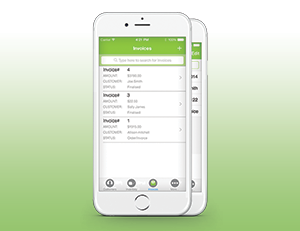Running Your Business From a Rented Home
A few months ago my family and I experienced a house fire that compelled us to move out of our own home and into rented accommodation for a period of time.
On the day it seemed like a catastrophe, but in the greater scheme of things it wasn’t the end of the world. We will be moving back into a fully repaired, furnished and decorated home within the next few days and life will return to normal, well, as normal as it gets for us anyway.
Finding myself as a tenant and not an owner occupier I looked into the implications of running my business from our new temporary home. What I discovered got me thinking about a number of the small business owners I know who use their home, or part of it, as an office or work room.
Starting a business is simple and a huge number of sole traders or micro businesses owner run from a home office. It keeps the overheads low while you get on your feet and means that at least once in a while you may see your spouse and children.
So, can you run a business from a rented home?
If you’re thinking of running you’re business while renting the first thing you must do is GET PERMISSION FROM YOUR LANDLORD. It’s only polite and fair to let them know that you’re running a business from their property, even if you are renting it. If they have acquired it with a “buy to let mortgage” chances are their agreement may prohibit the property being used for a commercial purpose. This can often be changed with a single phone call but you do need to tell them and also check your tenancy agreement as many prohibit running a business from the home, its simple to change but the landlord needs to be aware.
You may have to give an assurance that you will only work out of one room. Many agreements, even if they do allow commercial activity, limit the area used to 40% of the rented floor space.
So long as your proposed business doesn’t cause disruption in the neighbourhood or damage to the fabric of the building your landlord should be amenable and for once the law is on your side. The Small Business, Enterprise and Employment Act of 2015 states that a landlord cannot unreasonably withhold permission if a tenant what’s to run a business from their property.
Be willing to discuss things with your landlord. The majority of micro businesses can run with no more than a laptop computer and an internet connection but if your process could be disruptive then agree to limit the loud noises to the times of day when neighbours are normally at work, nobody wants to hear power saws running at nine in the evening but between eleven and three on a weekday, as long as it is not consistent, is less intrusive. Plan your disruptive activities for the times fewest people will be around to be disturbed.
If the landlord will not agree to your running a business from your rented home, and he has reasonable justification for doing so, there are alternative options which need not break the bank.
Hot desking or Co-working
If your creative juices don’t flow unless your surrounded by busy people then this is a great way for you to get started. Desk space is available in many major towns and usually offer the convenience of meeting rooms to rent by the hour as well as other fully serviced facilities.
Go Mobile
Travel to customers and offer your services in their home or office.
Why ask your customers to come to you when you can differentiate yourself by offering your service in their familiar surroundings. If you’re a hairdresser, a beautician or offer any sort of personal service this may be more convenient.
Self-storage unit
This is a great option as it is likely to incur less costs, bills and overheads than most alternatives. Plus you have the added bonus of plenty of space to store your stock. Check the opening hours fit in with your working schedule and if they provide essentials like WIFI within the building.
Wherever you decide to work from there are a few other things to take into consideration before you get started.
Business insurance
If your in business, any sort of business, you will need insurance. If you’re working from your home, owned or rented, you should tell your household insurance company as well as your landlord or mortgage lender. Businesses who come into contact with the general public need to have public and product liability cover and if you employ anyone, even part time you’ll need an employer’s liability policy.
Additional utilities, wear & tear
If you have a rental agreement which includes utilities and you’re running a hairdressing business then you are likely to use more water and electricity than if you’re simply using the building as your residence. Likewise, an online retro clothing business may have many movements of stock so knocks and bangs to paintwork are inevitable and an agreement with the landlord about what decorative condition is expected might be useful.
Keeping your landlord aware of the exact nature of your business from the beginning is the best way to avoid problems further down the line.
Don’t forget to claim your expenses
Working from home means you can apportion some of your domestic costs to your business. If you are using a room in your home as an office or photographic studio for instance you may be able to claim back a portion of your rent or mortgage interest, some of your electricity and heating bills as well as a proportion of the internet and landline charges form the business. There’s more information about this at HMRC’s website.












Leave a Reply